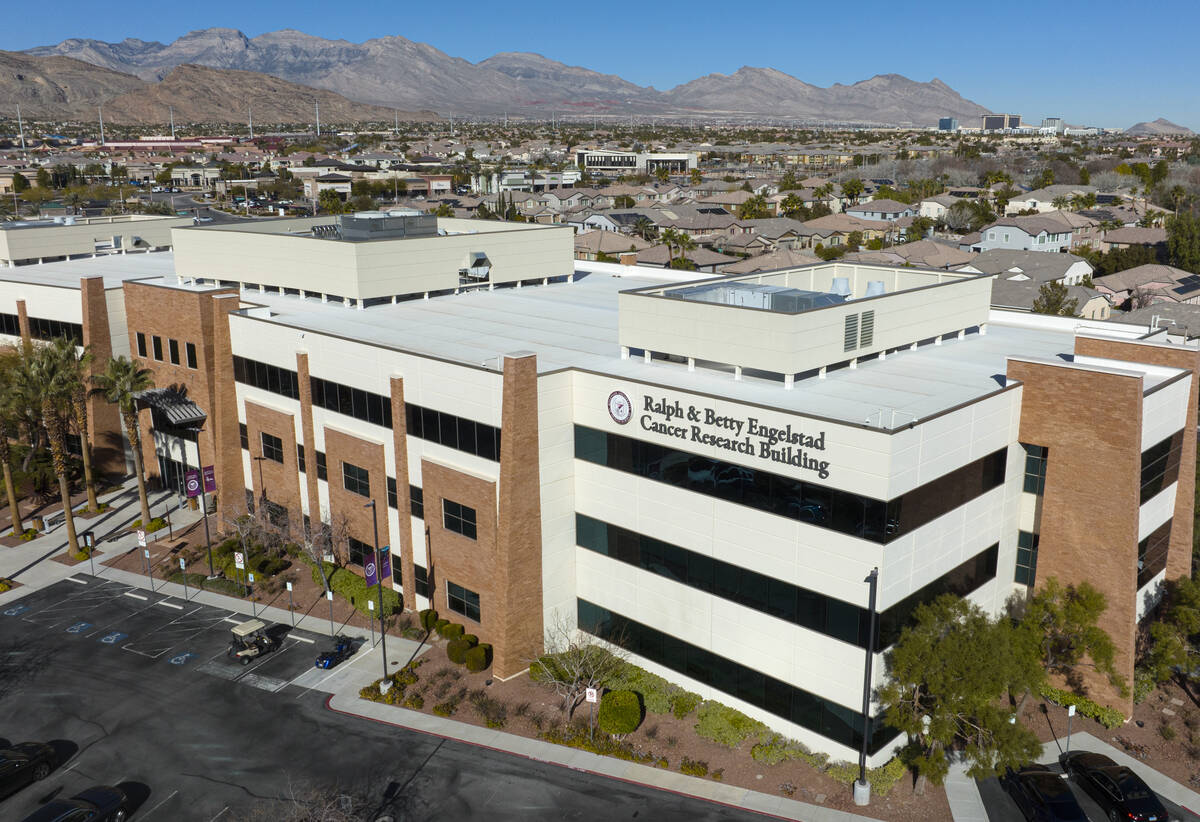A new medical school is opening in Las Vegas in an attempt to mitigate the physician shortage in Nevada.
Nevada-based Roseman University of Health Sciences is launching a four-year doctor of medicine program, after receiving Preliminary Liaison Committee on Medical Education accreditation on Thursday. The college will start taking applications in March and start a charter class of 60 students in July on its Summerlin campus.
This is the final accreditation the school needed to open its doors to students; the university previously received approval from regional accrediting bodies, the Northwest Commission on College and University and the Nevada Commission on Post-Secondary Education.
Roseman University, a nonprofit private institution that provides post-secondary training for those seeking a career in health care has three campuses, in Summerlin, Henderson and South Jordan, Utah. The university’s medical school marks the third MD-granting program in Nevada, alongside the University of Nevada, Las Vegas and University of Nevada, Reno. Touro University in Henderson offers a doctor of osteopathic medicine degree.
“Roseman has really been committed to meeting the health care needs of the communities that we serve,” said Renee Coffman, Roseman’s president and co-founder. “If you go back into our history, we started the first pharmacy program in the state of Nevada, 25 years ago because there was a shortage of pharmacists. That was the same rationale for starting our nursing program.”
Investing over $100 million
The school has invested “well over $100 million” into developing the MD program, which included purchasing buildings for its Summerlin campus, retrofitting them with classroom space, group learning space, an anatomy lab, a virtual anatomy lab and a simulation facility, as well as hiring and personnel costs, Coffman said.
By 2040, Roseman’s College of Medicine is projected to generate approximately $500 million in economic impact and support approximately 3,400 jobs in the region, while generating $27.4 million in state and local government revenue.
Coffman said the university’s MD program will be guided by a character-based curriculum to develop students’ ethics and virtue as well as service to the community.
The college aims to focus on underserved communities, and one way they plan to achieve that is through its existing Genesis program, where students visit patients in vulnerable households and provide medical care in-home to the entire family. Developed 20 years ago, Roseman students are already taking care of 140 households.
“It’s just not diseases. It’s preparing them to take care of things that cause disease or exacerbate disease,” said Pedro Greer, founding dean and professor at the College of Medicine. “When we developed this it was, ‘How do I get to the poorest, sickest patient before they show up at the clinic?’”
Training Nevada physicians
In addition to serving the underserved, the MD program aims to keep people in Nevada to address the physician shortage.
“‘How do I get physicians to stay here?’ Well, you gotta do various things. One is deal with your licensing issue. Number two is you have to have an environment where a young doctor wants to come back to appropriate employment,” Greer said.
He said the physician shortage is nationwide, but is “particularly acute” in Nevada, with the state needing 1,113 additional primary care physicians by 2030.
According to data published by the American Association of Medical Colleges, Nevada ranks 48th in the country for active primary care physicians and 49th for general surgeons.
The university will focus on recruiting MD students from Nevada, especially first-generation college students, and raising scholarship funds to ensure and encourage people to stay local. The school also has a STEM-based pipeline program called Aspire for kids in underserved, underprivileged areas with an interest in medical school.
Contact Emerson Drewes at edrewes@reviewjournal.com. Follow @EmersonDrewes on X.

